Go Slow to Go Fast - Part 2: Team – Counter Intuition – Medium
Building Strong Foundations for Leadership
This is the Part 2 of 3 of an edited version of my talk on becoming strong leaders, given at Lead Dev London, June 2018. See here for Part 1, and Part 3.
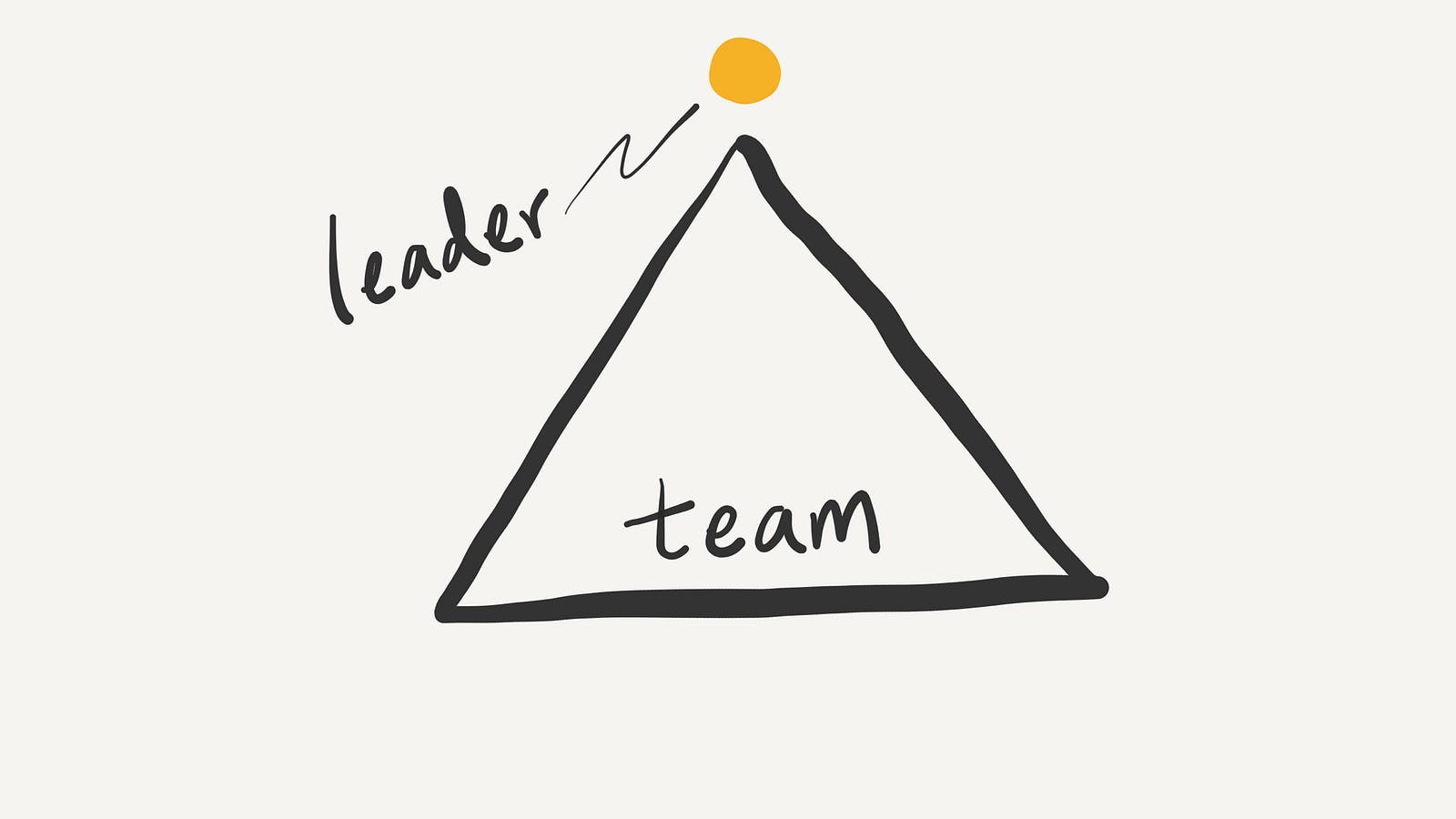
We think of a leader as the person in the front — like a commander leading their troop to battle. If the leader is wrong, their team is doomed. That’s a lot of pressure on one person to get everything right.
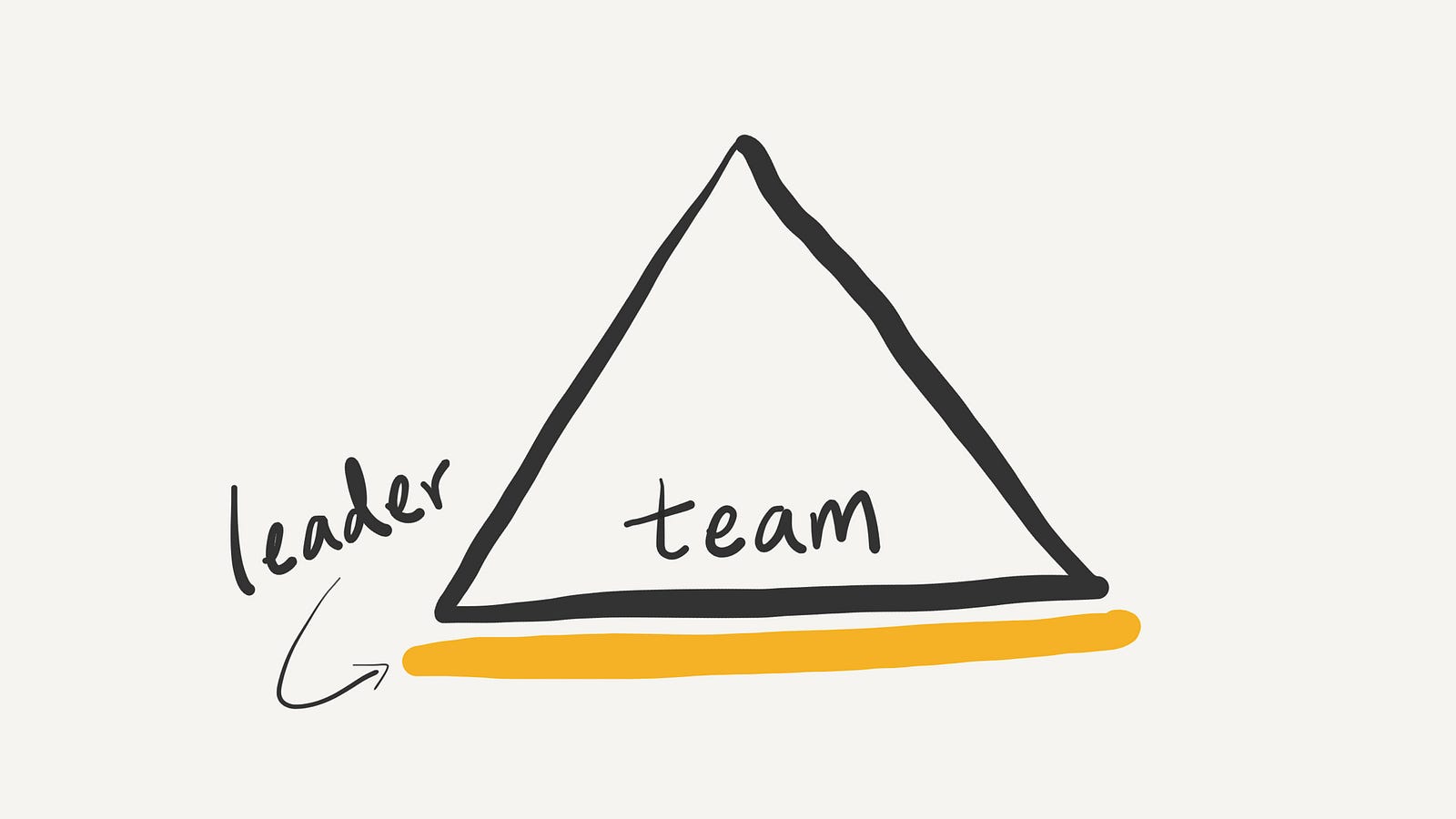
There is another way to look at the role of a leader, by flipping it upside down, as someone who creates the foundations to support their team’s growth and development. A leader creates the conditions for individuals to thrive and achieve their potential — individuals who can then provide this support for others. In this way, we grow a vibrant ecosystem, helping each other grow and achieve our collective goals.
Growing Yourself and Your Team
A gardener doesn’t tell plants how to grow, a gardener creates the best environment for the plants to flourish. But you still need to know how to garden, and what to weed out.
Leading in Uncertainty
Leadership is about dealing with unknowns. If everyone already knew what to do, we wouldn’t need leadership. When we look back on history, and read business case studies, it seems really obvious. We ask: “How did leadership not see this coming?” or “How did it turn into such a disaster?” And in the case of successful outcomes, we like to point to all the decisions that worked out, and say “That’s why!”. It’s very easy to create a narrative and point to things contributing to either success or failure because you already know the outcome.
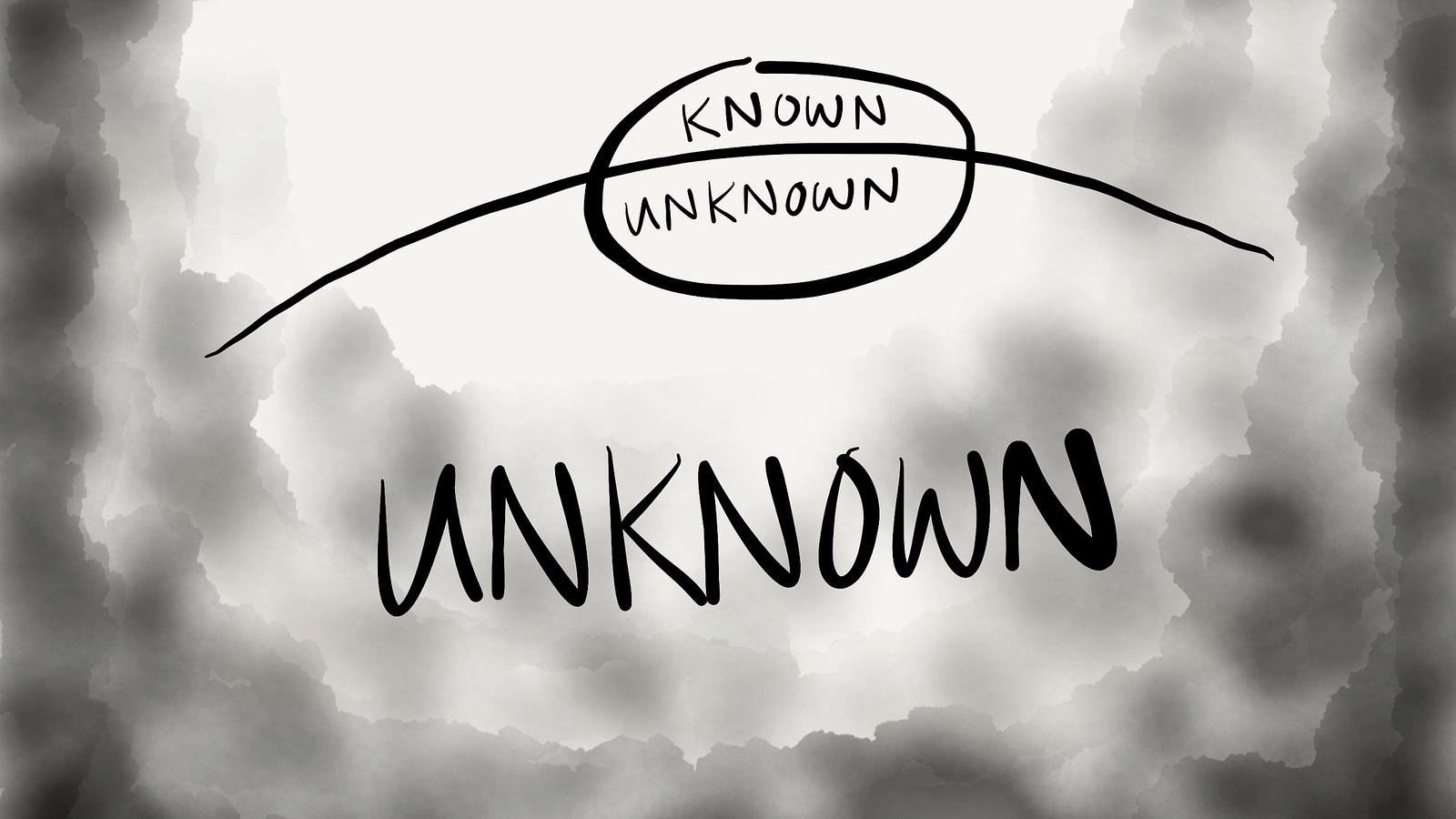
However, the truth is that we only ever live forward, looking into the unknown. The unknown unknowns are boundless. As a leader, you’re often making decisions where you have 51% confidence one way and 49% the other way. All the risky bets that didn’t pan out don’t make it into blog posts that you get to read.
The more you know, the more you’ll realize how much you don’t know.
Information ≠ Knowledge
You can’t study how to be a leader. You may have received information, but you can’t turn that into knowledge until you apply it. For myself, I built a leadership coaching service, and so I started reading management books before I became a manager, but I didn’t see the benefits of good management until I became one. I worked for a company literally called Coach.me, where I saw the benefits of coaching first hand, and I didn’t understand the power of coaching until after I left Coach.me, and I got a coach for triathlon training.
Maybe someone else has a grandiose formal English garden, and you’re growing vegetables on your balcony. Maybe someone else has a greenhouse, and you live in a desert. Their techniques might be excellent, but they’re not going to work for you. You could kill your plants if you apply the wrong thing.
A lot of our so-called “best” practices come from certain companies with certain cultures and certain problems that they’re trying to solve. They may be much bigger or smaller than you. Either way, as a leader, you need to develop your own judgment to figure out what works for you.
When you’re able to turn information into knowledge because you have to apply it, then you will learn very quickly what works and what doesn’t work.
Learning New Tools
Going from an engineer to a tech lead, to a manager, to managing a team, to managing multiple teams, every single step you have to learn a new set of skills, you have to fill a new toolbox and learn to use new tools. But more than that, you have to stop using the tools in your old toolbox. This can be really hard, because you have to stop using tools that you’re familiar with, that have served you time and again, that have brought you to where you are now.

Leadership is not just about a set of skills, the skills are your tools. The hard part is knowing when to use which tool. If you use the wrong tool, you might be very inefficient and tire yourself out, or even worse, you’re digging your team into a hole. A lot of new manager mistakes come down to continuing to use your old toolbox, instead of learning new tools. For example, engineering managers that still spend the majority of their time coding, or trying to make all the technical decisions.

With each change in role, not only do you have to learn a whole new set of skills, you’re also having to give up your identity. You have to give up being an amazing engineer to being a fairly bad manager. And that is incredibly difficult to do.
You do things a certain way for a reason, because you’ve been really successful doing it that way. That’s why you’ve been promoted! So when you get feedback that you should do something different, it’s very hard to really take that in, because you’ve gotten to where you are by doing things your way.
How could someone else possibly know better than you, and how could you give up something that’s been working well for you, to try this other thing that you’re not good at, and you have no idea if it’s going to work for you or not?
Foundations for Growth and Change
Everything I’ve learned in my years working in self-improvement, personal development, and behavior change, is that it is very difficult to make significant change. But to be a good leader, you have to change. And the foundation for the capacity to change comes from letting go of your ego, of your identity.

Great leadership is founded on humility. That regardless of how far you’ve made it, you know very little. Because with that kind of beginner’s mind, you are always open to learning, growing, and change.
Being humble is about really listening. You can’t just be caught up in your own thoughts, waiting for your turn to tell someone what you think. And as you manage more people, you will have more and more meetings. It becomes increasingly difficult to truly be present with each person and to really listen to their concerns and their unique situation, when you’re context switching every hour or 30 minutes.
Making Time to Worry
When I was promoted, I had a lot of anxiety, I was constantly worrying about the things I wasn’t doing, what I should be doing, and about the people I was managing. I was all over the place. What really helped me was scheduling time to worry. I would set a timer for 10 minutes, and worry until time was up. The magical thing is, when you let your mind worry, it actually calms down. You realize the worries are not as severe as you thought.

After a a couple weeks, I didn’t need the worry time anymore. If there’s a problem, I make time to solve it. If I can’t make time, it’s not high enough priority. Outside of when I’m actively planning or doing, I don’t need to expend my mental energy, which just makes me frazzled and less effective at doing the things in front of me.
The Magic of Meditation
Besides exercise, the other practice I do every day is meditation. And meditation is all about training the mind to be in the present, to be mindful about the here and now. While I’ve meditated on and off before, two years ago, I made a commitment to meditate every day, even if it’s just for a couple of minutes.

I’ve spent over 200 hours meditating. It doesn’t get any slower than this— just sitting there, doing nothing, thinking nothing. And it’s helped me tremendously, and in ways I didn’t expect at all.
Being the Angry Woman
I used to think that I was just a really angry person. If I got into a disagreement, my default behavior is to get angry at people, which is not a good leadership quality. I didn’t start meditating to achieve any specific goal, and I certainly didn’t start meditating to deal with my anger, because in fact I didn’t see being angry as a problem.
I saw my anger as the way that I dealt with a lot of the unfairness that I experienced working in tech as a woman. Always having to prove that I was technical enough despite so many years of experience and graduating with distinction from a top engineering school. Having to try that much harder to have my opinion count for half as much.
I’m lucky in having worked mostly with great people my whole career, and no major harassment or abuse has befallen me, but working against the constant and unpredictable background noise of micro aggressions and dealing with the symptoms of Impostor Syndrome and stereotype threat have weighed on me. My anger is what has protected me, and allowed me to continue to work in the heavily male dominated startup tech industry.

Recognizing My Anger
But when you’re angry, you’re not receptive to anything, certainly not to feedback, which we all know is really crucial, because you’ve already thrown up a wall of fire.
Meditation gave me space to separate my thoughts and my feelings from me. So I wasn’t bound up in the anger. It doesn’t mean I don’t get angry and I’m just now Zen all the time. Far from it. With the world the way it is, I experience a lot of outrage all the time. But now I’m able to calm down quickly, and bring myself back to a place where I have choice in how I want to respond to a situation.
And I’m not saying that anger is a bad emotion that you should push away. It’s not. We should feel angry about injustice that we see.
But now I have a choice in how I express that anger — instead of just blasting it out indiscriminately, I can choose to respond in a positive measured way that helps me achieve my goals and doesn’t burn up my relationships.
Though I confess I definitely still mess up plenty.
Developing Self Awareness
The higher up you go, fewer and fewer people will tell you when you’re messing up, not because they don’t want to help you, but because they can’t. If you are the leader, you are the person that’s most knowledgeable about your role. When you start managing a team, your manager is not going to know more about your team. When you’re leading a company, no one knows your company better than you (at least, I’d hope so!). You are de facto the person most equipped to figure out what’s going wrong and how to fix it, even if you don’t feel equipped at all.
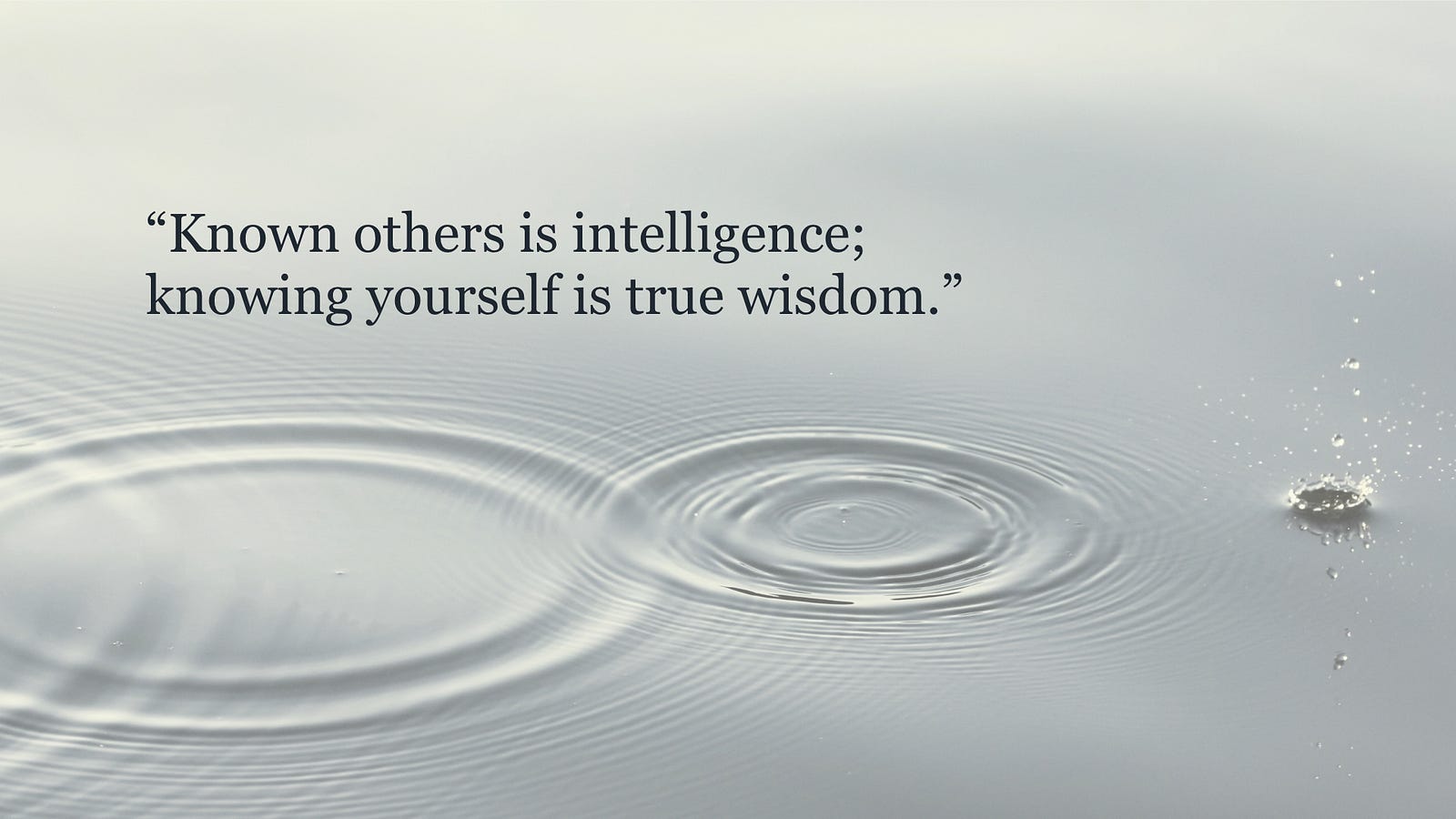
As a leader, you need to figure out when you’re messing up and to learn what to do, and you need to start with developing self-awareness.
You’re a leader because you have many strengths. But those same strengths are also the source of blind spots. For me, my anger was the source of my assertiveness and how I got things done, but I was blind to the way it affected other people. If we could recognize our weak areas, we would strengthen them. But our blind spots are literally areas we cannot see.
Many engineers are promoted into management because they are really good engineers. But it turns out that being a great engineer is a pretty different thing than being a great manager. Certainly there are people that are both, but if you’re a very strong engineer, it may actually be harder to develop good management skills because you’re overly relying on your skills as an individual contributor.
Unfortunately, management is often seen as a necessary evil. If everyone could just code, wouldn’t that be best? Which is why as engineering leads, we tend to get asked if we miss coding. My answer is always an emphatic No.
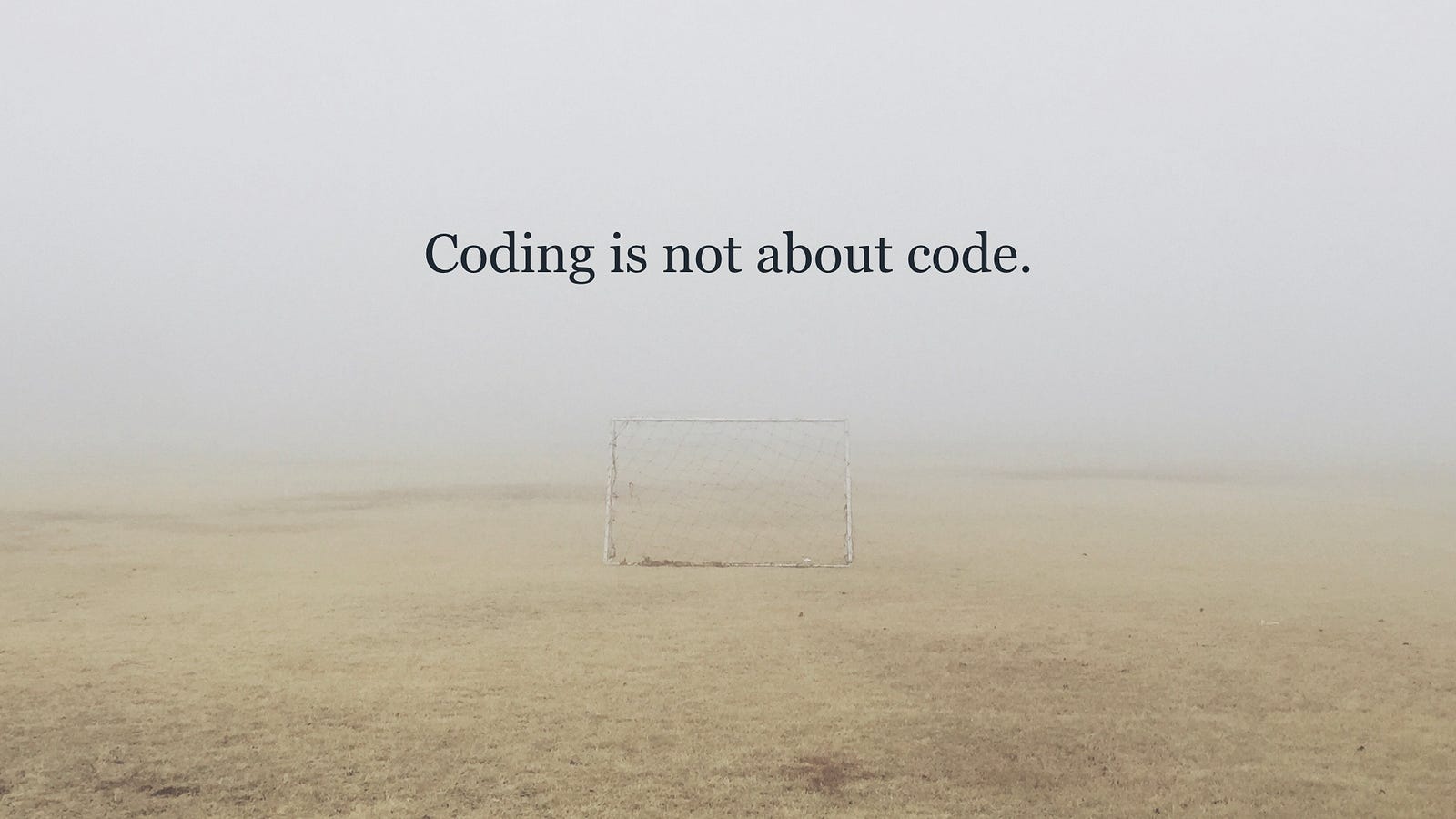
Because for me, coding is not about writing the code. Coding is about what I’m trying to achieve by writing code.
The things that I’m trying to achieve now are definitely not best served by me coding. Instead, I want to enable and support my team in achieving our collective goals and our mission of serving people. Continue to Part 3: World.
